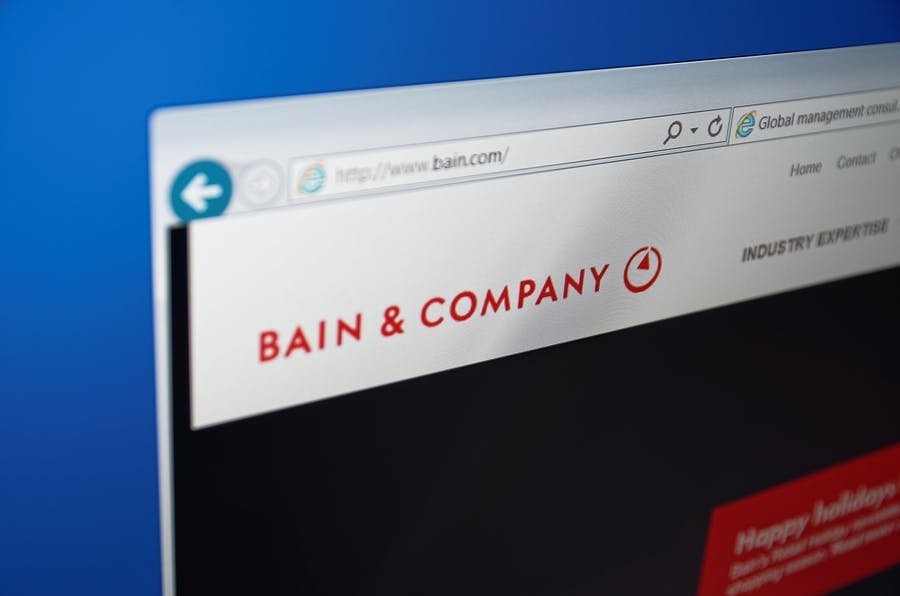If there’s one thing you can take away from Glassdoor’s Best Places to Work in 2019 list, it’s this: You really need to know the criteria that is used to put together any “Best Places to Work” list.
That’s an important thing to know, because if you look at the new Glassdoor Best Places to Work list and compare it to Fortune magazine’s 2018 100 Best Companies to Work For list, you’ll find something very curious — the Top 10 best companies are mostly different in each list.
For example, here is Glassdoor’s brand new Top 10 from its Best Places to Work in 2019 list that was just released this week. It’s a pretty interesting list, including:
- Bain & Company (4.6 rating)
- Zoom Video Communications (4.5)
- In-N-Out Burger (4.5)
- Procore Technologies (4.5)
- Boston Consulting Group (4.5)
- LinkedIn (4.5)
- Facebook (4.5)
- Google (4.4)
- lululemon (4.4)
- Southwest Airlines (4.4)
Knowing the Methodology Behind the List
Fortune‘s 2018 100 Best Companies to Work For list came out last January (it will publish its 2019 list after the New Year). Take a look at Fortune’s Top 10 Best Companies to work for and see what you think:
- Salesforce
- Wegmans Food Markets, Inc
- Ultimate Software
- The Boston Consulting Group., Inc.
- Edward Jones
- Klimpton Hotels & Restaurants
- Workday
- Genentech
- Hyatt Hotels Corporation
- Kimley-Horn
So, how can two well-respected and frequently cited lists about the best places to work be so different?
It all comes down to the methodology.
For example, here’s how Glassdoor’s Best Places to Work list is assembled:
“When employees submit reviews about their employer on Glassdoor, they are asked to share their opinion on some of the best reasons to work for their employer (pros), any downsides (cons), and are encouraged to provide advice to management. In addition, employees are asked to rate how satisfied they are with their employer overall, rate their CEO, as well as rate key workplace attributes like career opportunities, compensation & benefits, work/life balance, senior management and culture & values. Employees are also asked whether they would recommend their employer to a friend and whether they believe their employer’s six-month business outlook is positive, negative, or if they have no opinion. Among the more than 830,000 employers reviewed on Glassdoor, the average company rating is 3.4.”
That’s a great description of how Glassdoor does its list, but it’s really just a long way of saying that the list is primarily employee-driven, while the Fortune Best Companies to Work For is primarily driven by the companies themselves when they apply to the Great Place to Work Institute for certification and consideration as a “great place to work.”
Of course, analyzing and ranking companies in this manner isn’t easy, but I’m not surprised that the Top 10 lists of the best places to work are so different when you consider the inherent differences in the two processes.
10 Common Themes Employees Feel Are Important
Glassdoor’s new list also pulled out 10 common themes that it found employees list in company reviews. It’s a great “must have” list for companies who really want to be seen as a “great place to work.” Employees said they need to have:
- A mission-driven company culture;
- Employees need to feel valued;
- Smart, collaborative colleagues;
- Competitive compensation;
- Great perks and benefits;
- That the company has a clear direction;
- Opportunities for career advancement;
- Transparent senior leadership;
- Challenging/exciting work that delivers impact;
- The ability to have work-life balance.
Here’s my take: Both the Glassdoor and the Fortune lists are good ones, although the Glassdoor list is a little more eclectic and more interesting.
One question I had was this: What happened to Facebook? The No. 1 company on Glassdoor’s 2017 Best Places to Work list slid to No. 7 this year, and it saw its overall rating tick down from 4.6 to 4.5 rating among U.S.-based employees.
Maybe it’s because of all the crises and damage control going on there that The New York Times keeps writing about, or articles like this one that asks if users have a “moral duty to leave Facebook.” Companies bounce around somewhat on these lists depending on the year, but perhaps this dropoff is yet another sign of the troubles Mark Zuckerberg and Company are struggling with.
There were also 31 newcomers to the Glassdoor Best Places to Work list including Navy Federal Credit Union (No. 29). Compass (No. 32,), Omni Hotels (No. 72), Phoenix Children’s Hospital (No. 83), and HP Inc. (No. 87). Having 30 plus new companies this year speaks to the vibrancy of the list and that it’s not just the same old companies with slightly different rankings all the time.
Finally, the top industries represented are pretty much what I expected: Technology (29 companies), Healthcare (13 companies), Retail (eight companies), Manufacturing (eight companies), Consulting (five companies), Finance (five companies).
Glassdoor also has a Best Small & Medium Companies to Work For in 2019 list, and they are:
- Heap (4.9)
- Horizon Innovations (4.9)
- Silverline (4.9)
- Marketing 360 (4.9)
- Digital Prospectors (4.9)
The bottom line is that any list that digs into the best places to work is a list you want your organization to be on, because they are a wonderful way to let great candidates know that you’re the type of company or organization they ought to consider. It’s also great marketing for your TA efforts because it’s coming from an independent third party and not you.
That carries a lot of weight with most people, and that includes most job candidates too. If you’re not pushing to get your organization on somebody’s “best place to work” list, you should because it’s a great way to get more potential hires to come knocking at your door.
image from bigstock
